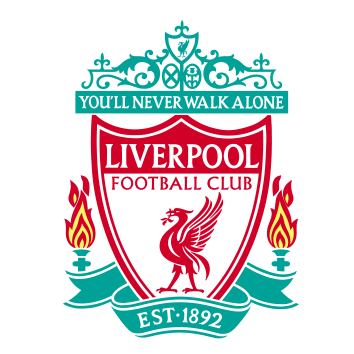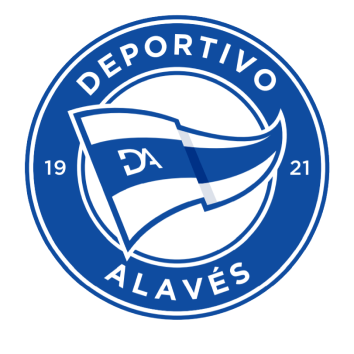
By
The 2000-01 season was the most important in Alavés history. A club used to roaming Second, Second B and even Third was able to excite an entire country with an unexpected final. The match turned out to be one of the most exciting in recent history with 9 goals and an overtime characterized by the golden goal. There was never again a match with that regulation in club competitions.
Those of Mané were a heterogeneous group with promising players and veterans who had not fully succeeded in their previous clubs. The defense was forceful, the midfield had workers like Desio and Astudillo and players with silk gloves such as Pablo, Jordi or Tomic. In the front, two points with a punch: Javi Moreno in a dreamy year and Iván Alonso, with a very powerful aerial game.

The team trained by Mané and Ondarru had the habit of concentrating the players in the French Pyrenean town of Bagneres de Luchon. The hotel was humble and there were no great amenities to send a clear message to the staff: “We are a humble club …”. Jordi Cruyff, when he first arrived at that stage, baptized the place where they slept as the “Hotel Cocodrilo”. From there came a lot of camaraderie that later, during the year, was maintained with Thursday dinners at the txokos in Vitoria. It was another football in many ways.

The blue-and-white team got off that year to Gaziantepspor (0-0 and 3-4), Lilleström (1-3 and 2-2), Rosenborg (1-1 and 1-3), Inter Milan (3-3 and 0- 2), Rayo Vallecano (3-0 and 2-1) and, finally, Kaiserslautern (5-1 and 1-4). Except for the last crosses, those of Mané used to tie at Mendizorroza and then they solved the pairings by winning at home. It was a very serious team in defense, with the ability to mount the contras and with punch. Once he managed to get ahead, it was very difficult to overcome him. In those years, he was able to win at Mestalla, the Bernabéu, Camp Nou and other first-level stadiums. Only San Mamés choked him.
The final was crazy, with more than 10,000 people from Alava traveling to Germany by plane, train or private car. A tent was set up a party like no other in the city center. Even a figure of Celedón, the villager who announces the festivities of Vitoria every 4 August, got down from the church tower. On the return from Dortmund, the team was entertained by 30,000 people in the Plaza de la Virgen Blanca, where the Alavés and Baskonia titles are celebrated.
The clash was marked by Liverpool's two early goals. By the 15th minute, he was already winning 0-2 (Alavés played at home). Between Iván Alonso and Javi Moreno came the comeback. Mané made two key changes: midway through the first half, he took the back of three center backs and returned to his classic 4-4-2 and, in the second half, removed Javi Moreno from the game. The overtime was reached and a goal in Geli's own door threw the blind to a magical night.
- What memories do you have of that final?
A bit of everything. Much joy to get to dispute it, much sorrow for how it ended and enormous pride after all.
- Is it true that you had not seen it until recently repeated on television?
If true. I did not want to remember some things for fear that they would hurt me, but my father died on December 9 and, since he was in Dortmund, I decided to see her again a few weeks ago when Teledeporte gave her in this policy of reviewing vintage parties.
- And what feelings did you have?
Similar to those I experienced in the field. It hurt a little to confirm that the referee whistled very in favor of the great from minute 1. They only saw one yellow card and we had two sent off.
- He scored two goals at the start of the second half but was later replaced. Have you thought about it a lot?
Well, surely if she had continued in the field, she would have been involved in something else, but you have to understand what Mané did. I wanted to reinforce the midfield and I have nothing to reproach him with. On both goals, it was a great joy because, at that time, they served for the comeback. We tied a game that had become very difficult for us.
- About finishing with a golden goal, what do you think?
Well, very cruel. There are many ways to lose a final and this seems to me the worst. The whole game against the current and, when you are already waiting to solve everything on penalties, and with nine players, that a goal comes in own door and you do not have the option to tie again does not seem right to me. In fact, since then games with that regulation have not been played in club finals. There would be a reason.
- What image do you have of the post game?
Well, a lot of helplessness and pain. But then, as time goes by, enormous pride. I remember that, already at dawn in a Casino where we had dinner, Raúl Gañán began to animate the evening and then, the arrival in Vitoria with 30,000 people in the Plaza de la Virgen Blanca was amazing.
- How is the coronavirus epidemic happening?
Fine in home. Quiet. It is a pandemic and affects everyone, so I think you have to take it easy.
- And your opinion of the return of football?
I see it as a mistake. The most important thing is health and that we can end the virus. Now football is not important and I have my doubts that the protocols that have been planned will go well. I would end the season.
-
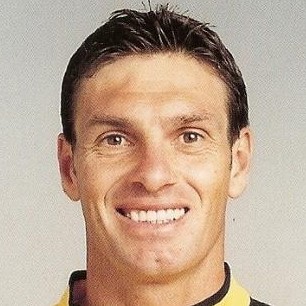
Herrera
Goalkeeperone
30 yearsArgentina
- Matches 13
- Headline 13
- Minutes 1200
- G. against twenty
- Unbeaten 3
-
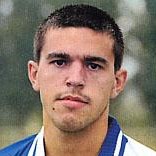
Against
Defending2
24 yearsRomania
- Matches eleven
- Headline eleven
- Minutes 981
- Goals 3
- Assists 3
-
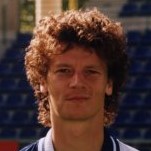
Eggen
Defending4
31 yearsNorway
–
- Matches 12
- Headline 12
- Minutes 1012
- Goals one
- Assists 0
-
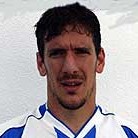
Tellez
Defending6
26 yearsSpain
- Matches 12
- Headline 12
- Minutes 1097
- Goals 2
- Assists 0
-
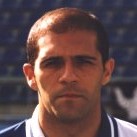
Karmona
Defending6
33 yearsSpain
- Matches 9
- Headline 7
- Minutes 676
- Goals 0
- Assists 0
-
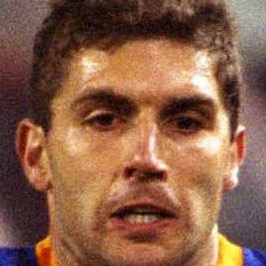
Geli
Defending7
32 yearsSpain
- Matches 12
- Headline eleven
- Minutes 981
- Goals 0
- Assists one
-
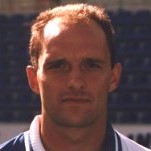
Desio
Midfield player16
31 yearsArgentina
- Matches 12
- Headline 12
- Minutes 1108
- Goals 0
- Assists 0
-
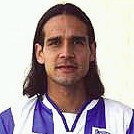
Astudillo
Midfield player18
24 yearsArgentina / Italy
- Matches 9
- Headline 8
- Minutes 647
- Goals 0
- Assists 0
-
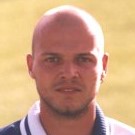
Tomic
Midfield playerfifteen
25 yearsSerbia
- Matches 12
- Headline 10
- Minutes 925
- Goals 3
- Assists 2
-
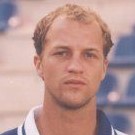
Jordi Cruyff
Midfield player14
27 yearsHolland / Spain
- Matches 10
- Headline 9
- Minutes 747
- Goals 4
- Assists 2
-
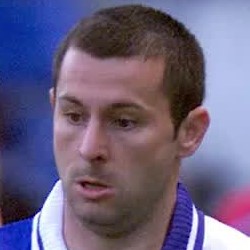
Javi Moreno
Forward9
26 yearsSpain
- Matches 8
- Headline 6
- Minutes 518
- Goals 6
- Assists 0
-
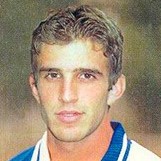
Iván Alonso
Forward19
22 yearsUruguay
- Matches 12
- Headline 8
- Minutes 823
- Goals 5
- Assists 0
-
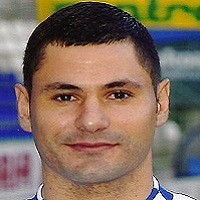
Great
Midfield playereleven
27 yearsBrazil
- Matches 12
- Headline 5
- Minutes 504
- Goals 2
- Assists one
-
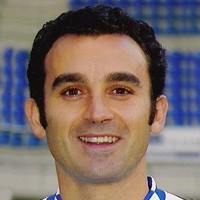
Paul
Midfield player10
30 yearsSpain
- Matches 8
- Headline 5
- Minutes 445
- Goals 0
- Assists 0

By
The first year of the 21st century was that of the confirmation of a project that came from seasons plagued by footballing doubts and in which the end of a long tunnel marked by the tragedies of Heysel (1985) and Hillsborough (1989) began to be seen. ). It was also the illusion of a future plagued by successes because the two stars of that great project were two products from the quarry, Steven Gerrard and Michael Owen, and what that means of identification with colors and history.
At the forefront was Gerard Houllier, a Frenchman who fell in love with football in Liverpool while pursuing his career in English philology. The 2000-01 season was the third of the French on the Anfield bench and the project offered guarantees for the solidity it had given the team. The tenant of the goal was the Dutchman Sander Westerweld, sober, but he felt very safe because ahead he had the guarantee of having a real wall formed Babbel, Hyypia, Henchoz and Carragher. Midfield offered a lot of work and deployment with McAllister, Hamman and Murphy so that Gerrard could disengage from his obligations and get close to the opponent's area. And in attack there appeared a complementary pair (skill plus power) like the one formed by Michael Owen and Emile Heskey and a luxury replacement with Robbie Fowler.
The first joy of the year came on February 25 by winning the League Cup at Birmingham in the penalty shoot-out after a 1-1 in a match that was played at the Cardiff Millennium Stadium by the works of Wembley, usual venue . Thus began to grow the confidence of the red.
On May 12, he returned to Cardiff to beat Arsenal (2-1) in the FA Cup final, with Owen as the main protagonist, scoring the two goals of the comeback against some Gunners who lived their golden age. That victory could not be celebrated because four days later, in Dortmund, he had an appointment with Alavés to play for the UEFA Cup title. That was Liverpool's first European final to play since the Heysel tragedy. Confidence in the victory was full among Houllier's men and that is why they faced the game with a dose of sufficiency that could cost them dearly at the Westfalenstadion event. With 3-1 on the scoreboard in the 41st minute they looked champions and when Javi Moreno put the 3-3 only ten minutes later they felt stunned and only fortune gave them the victory with an own goal by Geli in overtime. It is curious, the Reds reached the final after eliminating Roma, Porto and Barcelona from the knockout stages, conceding just one goal and in the final Westerveld received four.
With that victory, Liverpool fans boasted clover. But with the summer came more joys. At the Charity Shield, on August 12, again in Cardiff, he defeated Manchester United 2-1 and twelve days later defeated Bayern in the European Super Cup 3-2). Thus, Liverpool became the first team to win five cups in one year.
To the collective trophies were added the individual prizes. Michael Owen, the author of 24 goals on the season and a great exhibition with a hat-trick in England's win against Germany in a friendly in September, took the Ballon d'Or ahead of Raúl and Kahn, while Gerrard received the best player of the season award. They were days of joy at Anfield, although the league title continued to turn its back on the reds and that cooled the euphoria. Four years later, the knock came with the historic comeback to Milan in the final of the European Cup in Istanbul with Rafa Benítez on the bench. But that will be another story.


